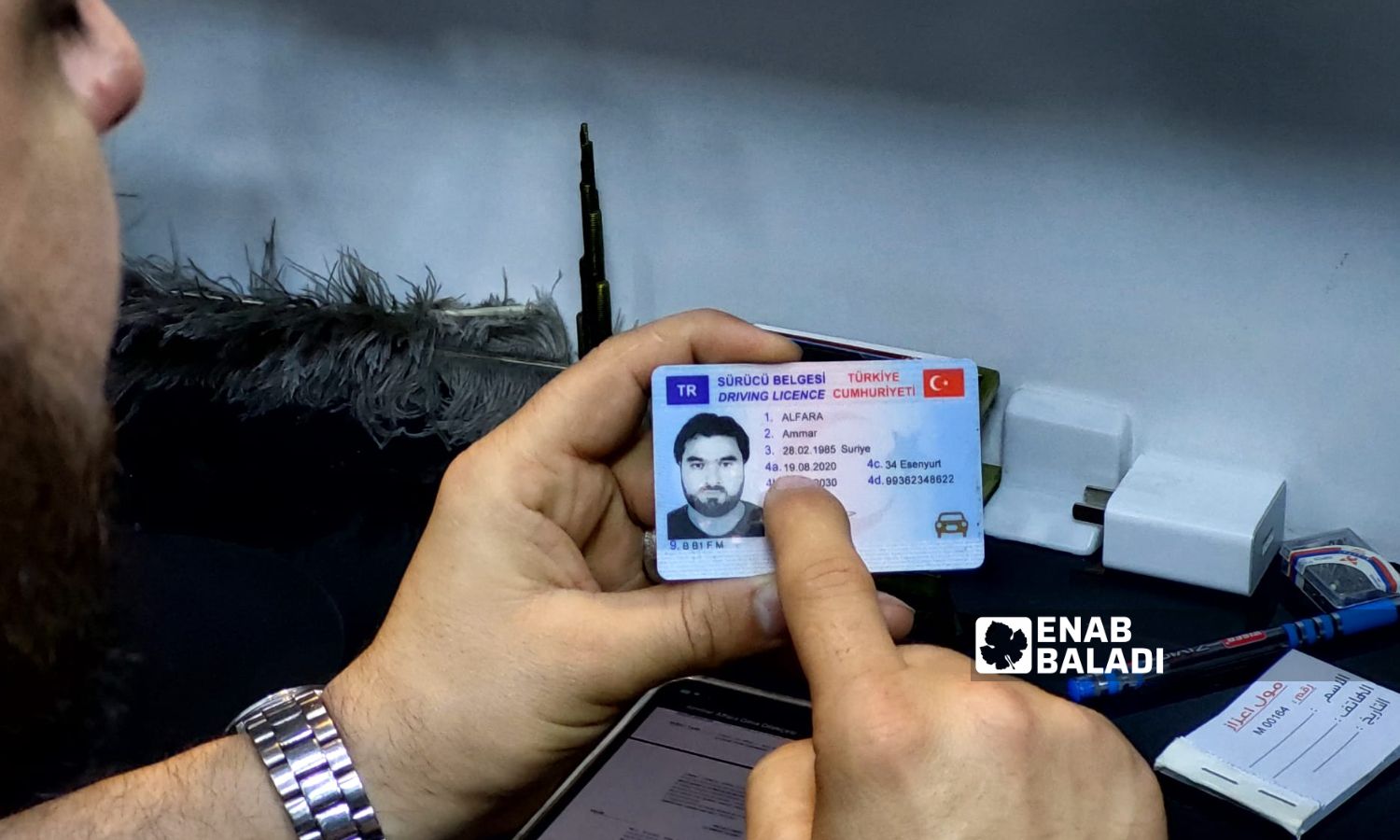



Enab Baladi – Azaz
The pace of deportation of Syrian refugees from Turkey to northwestern Syria increased during 2022, and the selection of deportees was semi-random, knowing that many of them carry temporary protection cards (Kimlik) and other identification papers.
The deported Syrians who settled in northern Aleppo today suffer from a deteriorating living situation compared to their conditions during their stay in Turkey, and most of them are looking for job opportunities that balance the expenses of their families who remained in Turkey with the value of income in Syria.
Ayman Asqati, 25, entered Turkey in early 2022 and stayed there for about eight months before the police arrested him in Istanbul for not having a Kimlik card.
Asqati, who hails from Idlib governorate, told Enab Baladi that he lived in poor detention conditions and was forced to sign voluntary return papers from Turkey, after which he was sent to northern Syria through the Bab al-Salama border crossing.
Since his arrival in Turkey, Asqati has taken up freelance work for low wages, part of which he sends to his family of five residing in Idlib.
He added that the deteriorating living conditions and lack of job opportunities in Syria prompted him to work on a vegetable stall to secure the family’s daily needs after he was deported from Turkey.
Although he has stopped working since his deportation, the wage difference between the two countries makes any profession practiced by an individual in Syria insufficient to provide for a family of two.
With the beginning of their asylum outside the country, the Turkish market was considered one of the best shelters for Syrians looking to improve their deteriorating living conditions in northwestern Syria, according to what displaced refugees told Enab Baladi.
Izz al-Din al-Sayel, 28, a breadwinner for a family of three, told Enab Baladi that he was arrested from the Kahraman Kazan region in Ankara at the end of 2022, and taken to the Immigration Department without prior warning, noting that he settled in Turkey for about ten years, without encountering any problems.
Al-Sayel’s situation is similar to that of many deportees from Turkey to northern Syria, where he has no relatives or acquaintances. He hails from the Hama governorate, but he is forced to live in gardens and mosques in the villages and cities of northern Syria, waiting for the success of one of his attempts to return to Turkey, where his family and property remain.
He said that he is unable to secure the cost of living for himself and his family, who are still in Turkey today.
The average living for families in Turkey ranges between $300 and $500, depending on the nature of the family’s life, place of residence, and other data, according to what al-Sayel and Asqati told Enab Baladi.
Al-Sayel is unaware of his fate while waiting for a “miracle” that will bring him together with his family in Ankara, Turkey, and he sits alone in a strange place, wondering, “How will I live and support my family?”
Before his deportation from Turkey, his living condition was acceptable, as he put it, as he was able to secure the daily necessities of his house and used to distribute his monthly expenses in proportion to the income.
Since his return to Syria, al-Sayel has become unable to secure these expenses, and the deported young man is looking for a job opportunity in or around the city of al-Bab after his deportation caused him to lose his job in a shoe factory in Ankara.
The case of Ammar al-Farra, who resided in Istanbul for 11 years, where he owns a chain of stores and holds a tourist residence permit, turned upside down when he intervened to solve a problem between a Syrian woman and police officers in a hospital in Istanbul, only to be surprised when he was taken to a deportation center and then deported to northern Syria after about a month spent in Turkish prisons.
Al-Farra is trying to build his new project in northern Syria after he was unable to return to Turkey to meet his family residing there. Today, he owns a coat shop in the border city of Azaz.
He is also trying to obtain a “Merchant Card” that would allow him to cross into Turkey from time to time legally to meet his family while continuing his work as a merchant to support his family residing in Turkey, given the difference in the cost of living and the value of income between Syria and Turkey. This task is extremely difficult even for high-income residents of northern Syria, he told Enab Baladi.
The number of Syrians residing in Turkey, according to the latest statistics issued by the Turkish Presidency of Immigration on its official website, has reached 3, 395,909 Syrians who hold a temporary protection card.
Enab Baladi’s correspondent in Azaz, Dayan Junpaz, contributed to this report.
if you think the article contain wrong information or you have additional details Send Correction